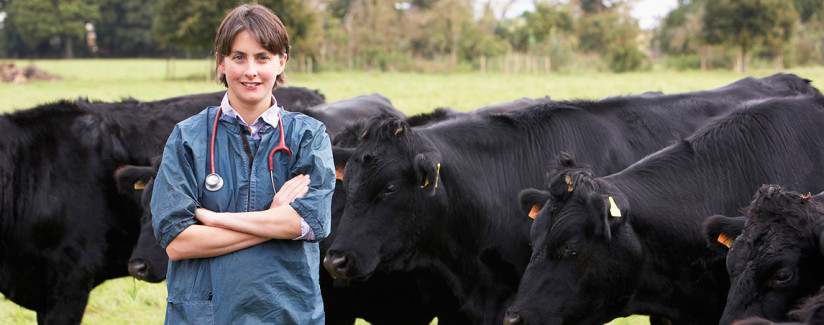
Do Antibiotics Do More Harm Than Good?
Most of us are familiar with what antibiotics can do for humans who are sick, but how are they used in animals to maintain health and create a safe food supply? Registered dietitian Carolyn O’Neil, talks about antibiotics with Dr. Michael Doyle, a leading researcher in the area of food microbiology and bacterial food borne pathogens and director of the Center for Food Safety at the University of Georgia.
Dr. Doyle, what is the connection between antibiotics in animal health and the problem of antibiotic resistance illnesses in humans?
Dr. Michael Doyle:
We know that when we use antibiotics, whether it be in feeding animals, treating animals or treating humans, that antimicrobial bacteria can develop. We have monitored this for years. The public health community is very concerned that if we continue to do this we are going to develop strains of bacteria that are no longer treatable with antibiotics. The idea is that if we were to use less antibiotics not in just animals but also in people, we would continue to have useful antibiotics in human therapy.
That’s got to be difficult because if a human is sick you want to treat them to get them better. If an animal is sick, you want to treat them. How are antibiotics used in food and animal production?
Dr. Michael Doyle:
Traditionally, farmers and animal producers have used antibiotics as a sub-therapeutic treatment – that is to prevent illness from occurring. Some of the antibiotics can also help promote the growth of the animals. What we are finding is that if we do this, we can develop antibiotic resistant bacteria. The focus now is to reduce the use for growth promotion reasons and just focus on treating these animals if they get sick.
How should we feel right now about the safety of feeding beef or chicken or pork to our families? Are there antibiotic residues in the meat we are buying?
Dr. Michael Doyle:
There is no concern for the antibiotic residue. The antibiotics are typically not coming through the animal or the meat. That is something that can happen, but it’s monitored and typically does not happen, at least in food produced here in the United States. The concern is the development of antibiotic resistant microbes that are not going to be treatable long term.
So, is there anything we do at home to make sure foods of animal origins are prepared properly and safely?
Dr. Michael Doyle:
Good food handling practices will go a long way to controlling harmful microbes. We, as consumers, should always think of foods of animal origins as potentially having harmful microbes and treat them with respect by following good food handling practices.
- CLEAN: Wash hands and surfaces often
- SEPARATE: Don’t cross-contaminate!
- COOK: Cook to proper temperature
- CHILL: Refrigerate promptly
Learn more about good food handling practices here.
Image: “A Veterinarian in Field with Cattle” by U.S. Department of Agriculture is licensed under CC BY 2.0.



























